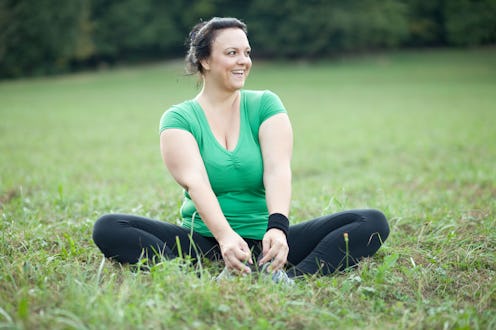Life
A New Study Reveals The Weird Way Your Response To Emotions Changes As You Get Older

The teenage years can be really tough for some people for a lot of different reasons, but the biggest threat is usually bullying from other kids. But why does your sensitivity to that bullying — you know, your ability to “shake it off” — seem to get better as you get older? Well, according to a new paper published in the Journal of Experimental Psychology: General, the way you read emotions changes throughout your life, and that can affect your emotional sensitivity, according to a news release. The researchers say their findings show that as people get older, they get less sensitive to anger cues, making positive cues stand out, the news release said. That's kind of like science’s way of saying things really do get better when you get older — or, at least you think you do.
Researchers at McLean Hospital’s Laboratory for Brain and Cognitive Health Technology in Massachusetts created a digital test of emotional sensitivity, the news release said, and had nearly 10,000 men and women between the ages of 10 and 85 take the test. The test was designed to help the researchers measure how much each participant could detect subtle differences in facial cues that showed fear, anger, or happiness, according to the news release, as well as how people of different ages reacted to those facial cues.
“From studies and anecdotal evidence, we know that the everyday experiences of an adolescent is different from a middle-aged or older person, but we wanted to understand how these experiences might be linked with differences in basic emotion understanding,” Laura Germine, the study’s lead author, technical director of the McLean Institute for Technology in Psychiatry, and director of the Laboratory for Brain and Cognitive Health Technology, said in the news release.
“We found that sensitivity to anger cues improves dramatically during early to mid-adolescence,” Lauren Rutter, study co-author, said in the news release. “This is the exact age when young people are most attuned to forms of social threat, such as bullying. The normal development of anger sensitivity can contribute to some of the challenges that arise during this phase of development.”
But the study also showed that as people age, even though their sensitivity to the facial cues for fear and anger decreases, their ability to detect the cues for happiness stays the same, the news release said. “What’s remarkable is that we see declines in many visual perceptual abilities as we get older, but here we did not see such declines in the perception of happiness,” Germine said in the news release. “These findings fit well with other research showing that older adults tend to have more positive emotions and a positive outlook.”
The Association for Psychological Science (APS) says there’s decades of research supporting findings that older adults consistently report feeling more positive about their everyday lives than younger adults. One theory is that older adults are more likely to look at the positive side of a situation, says the APS, because they recognize they have limited time left in life and would rather optimize their well-being than focus on the negative.
The researchers behind this latest study plan to examine how their work might be related to different aspects of mental health, like anxiety, the news release said. The researchers also plan to look into how emotional sensitivity cues might affect mental health after experiencing a trauma.
This new research shows that the way you experience emotions and interpret facial expressions can play a factor in how you experience the world. And as you get older, it’s pretty likely you’ll experience more happiness than negative emotions. Now that’s one really bright silver lining to life if I ever saw one.